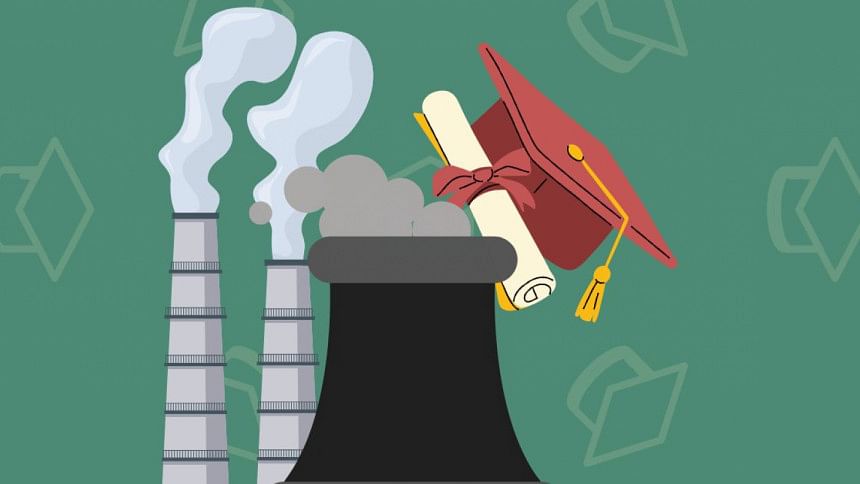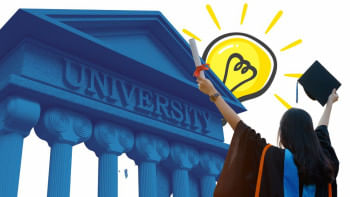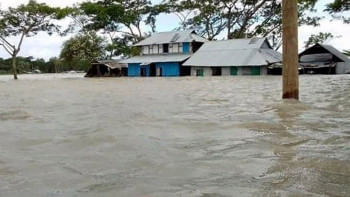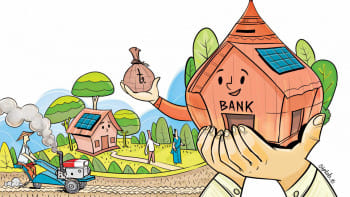Making a university great, with climate action

Today's column is in response to the thought-provoking series of articles in The Daily Star on "What makes a great university" by Dr Syed Saad Andaleeb, Dr Ahrar Ahmad, and Dr Halimur R Khan.
I would suggest not changing the entire university sector in Bangladesh, but rather to develop a world-leading effort in research and teaching to tackle climate change – not in a single university but across all universities that wish to participate in the venture.
Bangladesh is at the forefront of having to tackle climate change out of necessity, so we cannot avoid learning how to do so. However, what is hitting us now will hit every other country tomorrow, which gives us an opportunity to lead the world in coming up with solutions. The premise is to turn the challenge of tackling climate change into an opportunity for us to be the first to learn how to do so.
The first step in this effort has already been achieved by one of the world's first master's degrees in Climate Change and Development, started in 2012 at the Independent University, Bangladesh (IUB), which has already produced over a hundred graduates from Bangladesh and other countries. Other universities are also developing courses on climate change, and should be encouraged and supported.
The second step, which has also been achieved, is a network of over fifty universities and research institutions called Gobeshona. This involves sharing knowledge on adaptation amongst member institutions. The Gobeshona network is now ready to scale up its activities to ensure that members can carry out more research on how to tackle climate change. This will need significant investment from the government, from development partners, and from the country's private sector. The foundation has been laid, we now must build on that foundation.
The next step that needs to be taken is to enhance the teaching of climate change and environmental topics at the undergraduate level in as many universities as possible, as quickly as possible. This will require a focused effort by the University Grants Commission of Bangladesh (UGC) and the Ministry of Education. As we enter the new era of climate change, all our educated children need to become educated on this topic. This education must not be classroom-based but field-based. It should not focus only on the problems, but on solutions. Our youth must be made capable of becoming climate champions.
All of the above can be achieved relatively easily and with modest levels of additional funding. But it will require a major change in attitude from all relevant authorities within and outside Bangladesh to work together in a concerted effort. If this could be done, then it would indeed be a major step towards creating a Smart Bangladesh.
This effort will not only help Bangladesh to tackle the impending impacts of climate change (which are now inevitable), but the knowledge we generate and the graduates we produce will be able to help other developing and even developed countries to tackle the global challenge of climate change.
Dr Saleemul Huq is director of the International Centre for Climate Change and Development and professor at Independent University, Bangladesh.

 For all latest news, follow The Daily Star's Google News channel.
For all latest news, follow The Daily Star's Google News channel. 













Comments